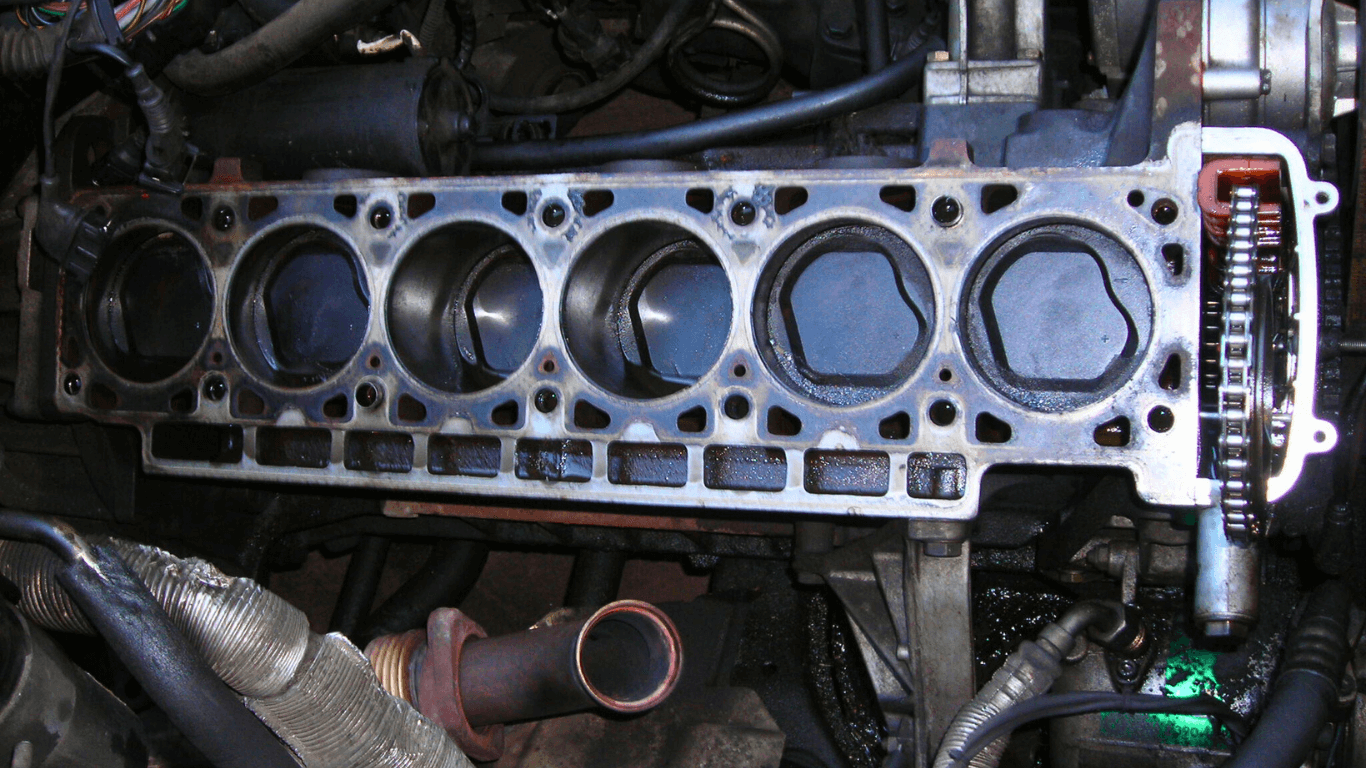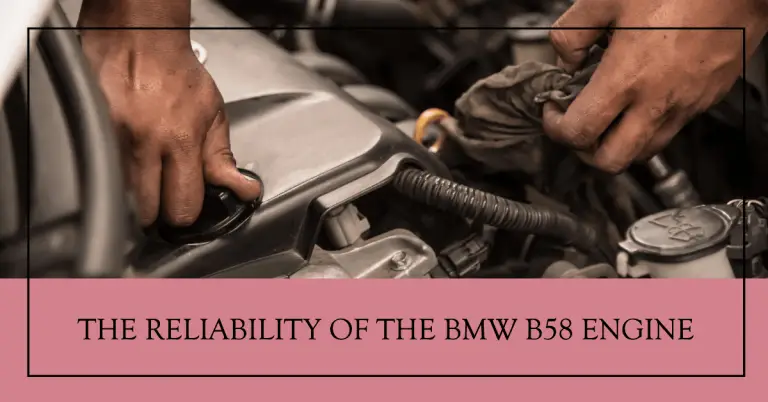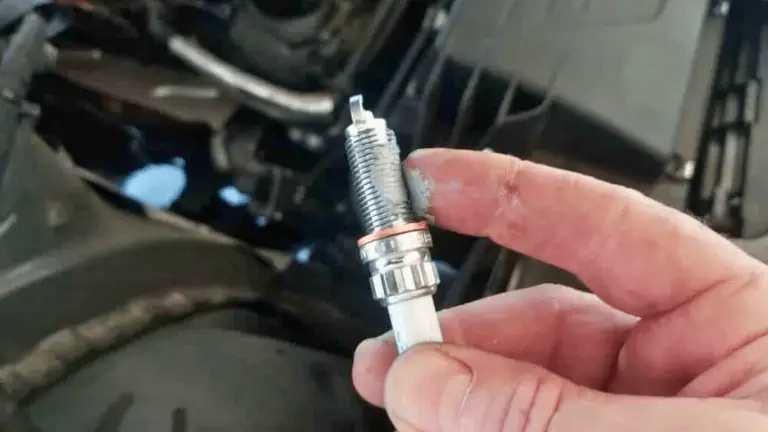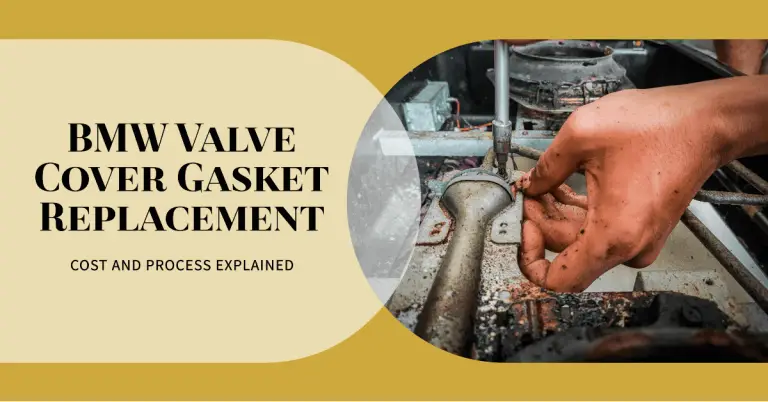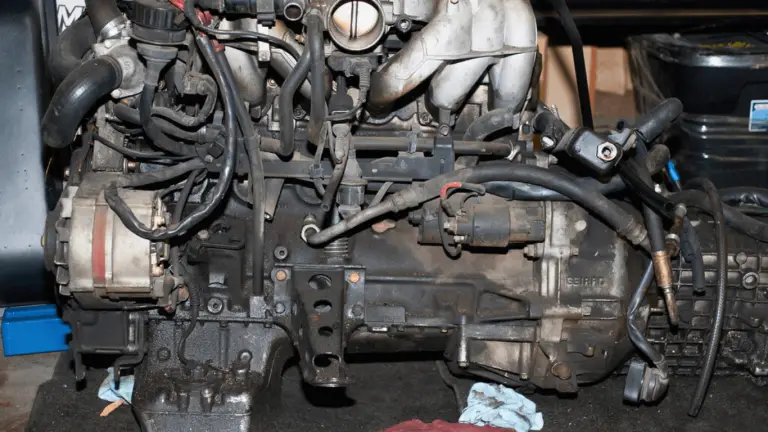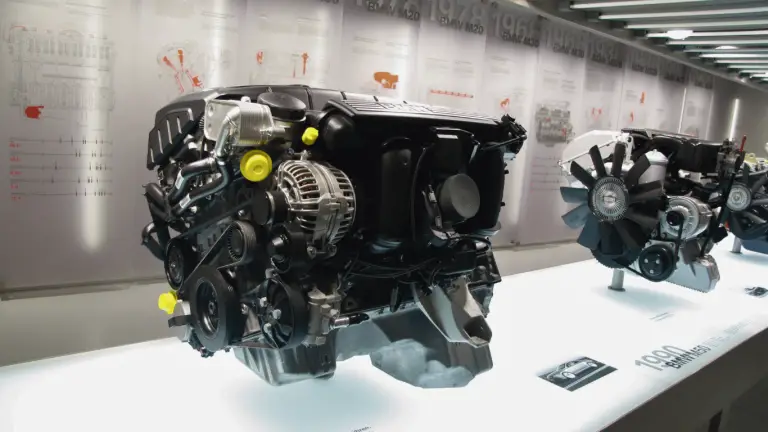BMW Head Gasket Replacement Cost: What You Need to Know
Your BMW’s engine is made up of multiple components that must work together harmoniously to produce power and keep everything running smoothly. A critical piece that helps seal the engine and allows it to function properly is the head gasket. This small but mighty gasket sits between the engine block and cylinder head, helping to seal in combustion pressure and keep engine coolant flowing through the block and head.
So what happens when this important gasket starts to fail in your BMW, and how much can you expect to pay for a head gasket replacement? A blown or leaking head gasket in a BMW can cost $1200 to $2500+ to replace when parts and labor are factored in. The final cost depends on the BMW model, engine size, repair shop rates, and if additional repairs are needed.
In this detailed guide, we will cover everything you need to know about BMW head gasket replacement cost and how to save money on this repair. Read on for more on:
- What a head gasket does and why BMW models are prone to failure
- The parts and labor costs involved in the job
- Key factors that impact the total replacement cost
- DIY vs paying a professional mechanic
- How to save money on your BMW head gasket repair
- FAQs about causes, symptoms, and costs
Gaining an understanding of what a head gasket does, why it fails, and how much you can expect to budget for this repair will help you make an informed decision when faced with a blown gasket in your BMW. Let’s dive in!
What is the Function of a Head Gasket in a BMW Engine?
Before jumping into the costs of a blown head gasket, it helps to understand what role this component plays in your BMW’s engine system.
The cylinder head and engine block are two major components that make up the core of your engine. The head gasket sits snugly sandwiched between these two components, sealing the small gap where they meet.
Some key functions of your BMW head gasket include:
- Sealing combustion pressure – When fuel ignites in the combustion chamber, it creates immense pressure. The head gasket contains this pressure and forces it downward to turn the crankshaft rather than allowing the gases to leak out.
- Separating engine oil and coolant – The gasket seals passages between the engine block and head. This keeps oil in the crankcase and coolant in the water jackets from leaking or mixing together.
- Transferring heat – As a metal component, the BMW head gasket conducts heat from the cylinder head into the engine block to be cooled by the coolant.
- Maintaining compression – The gasket seal allows for proper engine compression. Loss of compression due to a leak will cause poor performance.
Simply put, this gasket plays an absolutely vital role in your BMW’s engine performance and function. When it starts to wear out or fail, immediate repairs are needed.
Why Do BMW Head Gaskets Fail?
BMW head gaskets are made of durable, heat-resistant materials like multi-layer steel and advanced polymers. So why do they still fail prematurely in some BMW engines?
Here are some of the most common causes of a blown or leaking head gasket in a BMW:
- High mileage – The head gasket is one component that will simply wear out over time and mileage. Most start to leak or fail around 100K miles or more.
- Engine overheating – Consistent overheating weakens the gasket over time and leads to warpage or breakdown of the sealing surfaces.
- Improper maintenance – Lack of cooling system maintenance and old coolant causes corrosion and buildup leading to leaks.
- Defective parts – In rare cases, a defective head gasket can be installed and fail very prematurely.
- Repeated heat cycling – The constant heating and cooling in daily driving cycles takes a toll on head gasket integrity over the years.
- Pre-existing engine damage – Existing damage like a warped cylinder head or block puts extra stress on the gasket.
When one or more of these factors are present, you’ll quickly find the head gasket losing its ability to seal, leading to some serious engine issues.
Breaking Down the Cost: BMW Head Gasket Replacement Parts
When it comes time for BMW head gasket repair, you can expect both parts and labor costs to account for the total bill from your mechanic. Let’s break down the typical parts needed first:
- Head gasket set – The head gasket itself along with valve cover and other gaskets will come in a full seal set, running $150-$300 depending on BMW model and engine.
- Misc seals and o-rings – Small seals for things like the thermostat housing, intake elbows, and water pump will add another $50-$100.
- Head bolts/studs – Many mechanics recommend replacing the head bolts as a precaution when reinstalling the head, adding around $50-$150 to costs.
- Coolant – Around 5-6 liters of fresh coolant will be needed for the repair, adding $30-$60 to the total in parts.
- Oil – The oil will be drained and refilled, accounting for another $30 in new oil.
- Misc supplies – Small shop supplies like sealant/adhesive, rags, gasket remover etc may cost up to $50.
As you can see, the head gasket kit itself is the bulk of the parts cost. But all the miscellaneous supplies, seals, and fluids can quickly add another $200 or more to the total parts cost. When budgeting for your BMW head gasket job, expect total parts costs to range from $350 up to $500+.
Factoring in Labor Costs
While the head gasket and related parts will cost a few hundred dollars, the majority of the total repair bill comes from labor. This extensive repair requires 10-20 hours in most cases, sometimes more if there is additional damage.
The average shop labor rate is around $100 per hour these days. At that rate, you can expect to pay $1000 to $2000 or more just for the labor involved in this repair. Adding together parts and labor gives you a total average cost of $1200 to $2500+ to replace a blown head gasket in a BMW.
Keep in mind that’s just the typical range – your final repair costs could exceed $2500 if it’s an older high mileage BMW that needs more extensive repairs beyond just the gasket. As we’ll discuss next, a number of variables impact your final head gasket replacement cost.
Key Factors That Influence the Total BMW Head Gasket Replacement Cost
Your specific BMW model, engine configuration, and repair circumstances will determine how much you end up paying for a head gasket replacement. Here are some of the key factors that can raise or lower the total repair costs:
1. BMW Model and Engine Size
The more complex BMW engines like the V8, V10, or V12 found in high performance M models will cost more for parts and labor vs the base inline 4-cylinder or 6-cylinder engines. The total bill for replacing a head gasket in an M5 or M3 will likely exceed $2000, while a base model 3-Series or X3 can be $1500 or less.
2. Your Location and Shop Labor Rates
Just like any car repair, shop rates vary tremendously by region and shop type. Dealerships and high-end shops in major cities like LA or New York charge $125-$150+ per hour in many cases. In smaller towns at reputable independent shops, rates can be under $100 per hour. This $50+ difference in shop rate can save or cost you $500+ on labor for the gasket job.
3. Additional Repairs Needed Beyond Just the Gasket
If your cylinder head or block deck surface is warped or damaged, additional machine work will be required to resurface it, adding hours of labor. Other oil leaks, coolant leaks, or damaged components found during the repair will also add cost in parts and labor for the additional repairs needed. These variables can quickly turn a routine head gasket job into a $3000+ repair bill.
4. Use of OEM vs Aftermarket Replacement Parts
Opting for brand-name OEM BMW parts from the dealer will add cost over using quality aftermarket or OEM-equivalent parts from third parties. Rebuilt and remanufactured parts also offer cost savings of 25-50% or more over new. If budget is a concern, using non-OEM parts can provide significant savings.
5. Attempting this as a DIY Project vs Hiring a Professional
This is one of the more advanced jobs to take on as a DIY project. Success requires expert mechanical skill, BMW experience, and some special tools. Unless you’re highly skilled, paying a professional will avoid improper installation and the need for costly repairs down the road.
As you can see, many variables impact the total parts and labor costs for a BMW head gasket replacement. When faced with a leak or failure, requesting quotes from different shops and discussing the best parts options can help minimize the costs.
Can I Save Money by Replacing a BMW Head Gasket Myself?
When staring down a $2000+ repair quote for a head gasket replacement, it’s tempting to consider tackling this project in your own garage as a cost-saving measure. But before taking that on, know that this is one of the more challenging DIY jobs you’ll attempt on a BMW.
Things to consider if attempting a BMW head gasket replacement yourself:
- Advanced skill level – Experience with major engine teardowns and repairs is a must. Not for beginners.
- Specialty tools – You’ll need torque wrenches, piston ring tools, valve spring compressors, head bolt sockets, and other BMW specialty tools.
- Patience – Plan to spend an entire weekend tearing the engine down and being meticulous during reassembly. Rushing leads to mistakes.
- Precise work – Watch videos to learn the precise gasket installation and torque procedures needed to avoid leaks.
- Risk of issues – Improper installation can lead to other major engine damage down the road requiring an expensive rebuild. Paying a pro mechanic you trust is often worth the peace of mind.
While DIY is possible if you’re an advanced home mechanic, most BMW owners are better off paying a professional to replace a leaking or blown head gasket. But you can still save money by choosing the shop wisely and negotiating on rates and parts costs.
How to Get the Best Deal on BMW Head Gasket Repair?
Even when paying a shop to replace your blown BMW head gasket, there are ways to reduce the total costs without compromising on quality:
- Use an independent shop – Independent mechanics often offer rates 25-50% less than dealerships, saving hundreds in labor costs. Check reviews to find a well-respected BMW specialty independent shop in your area.
- Get multiple quotes – Don’t take the first shop’s estimate. Get quotes from at least 3 mechanics to compare rates. Look for any discrepancies or major differences in how they scope the job.
- Ask about part options – Discuss using quality aftermarket or rebuilt parts rather than expensive OEM BMW components from the dealer. Get pricing on both options.
- Negotiate on rates/parts costs – Politely discuss options for reducing the total price, like dropping shop fees or getting a break on labor rates. Offer to supply your own parts to save on markup.
- Bundle services – If your BMW needs other major maintenance items or repairs, negotiate a multi-point inspection and bundle services together for a discount on labor rates.
- Ask about coupons/specials – Look online or inquire about any coupons or seasonal specials that may reduce labor rates or parts costs. Even $50-$100 off helps.
With some proactive research and negotiation, you can reduce the costs on a BMW head gasket replacement by a few hundred dollars in many cases. don’t be afraid to ask questions and discuss ways to save. Every bit helps on a major repair like this.
Still Have Questions? Here are the Most Common BMW Head Gasket FAQs
Still curious or unclear about the causes, symptoms, and costs related to replacing a blown head gasket in your BMW? Here are answers to some of the most frequently asked questions:
How long does it take to replace a BMW head gasket?
At a shop allowing the mechanic adequate time, plan for your BMW to be in the shop 1-2 days typically. If extensive repairs are needed, it may take 3-5 days from drop-off to being ready for pickup.
Is it worth replacing the head gasket if the engine is already high mileage?
Generally yes – if the engine is in otherwise good shape with good compression and no other major issues, paying for a head gasket replacement is preferable and more cost-effective than doing an entire engine swap.
What happens if you continue driving with a blown head gasket in a BMW?
Driving with a known blown head gasket can quickly lead to catastrophic engine failure. As coolant and oil leak past the gasket they will eventually mix together. This will cause severe engine overheating and permanent damage. Don’t continue driving if you suspect a blown gasket.
What are the typical symptoms of a failing head gasket?
Watch for these warning signs: engine overheating, white exhaust smoke, sweet smell from the exhaust, engine oil or coolant leaks, rapid coolant loss, and coolant in the oil.
Does replacing the head gasket require replacing the timing chain?
Only if there are signs the timing chain has stretched or is damaged. Many times the timing components can be reused if still in good condition, helping minimize costs. Your mechanic will check their condition.
Will I need to get the head resurfaced if the gasket is blown?
It depends – your mechanic can check the head and block deck for any warpage or damage. If within specifications, they can often be reused without resurfacing to help reduce costs.
I hope this detailed guide has given you a good overview of the typical costs and considerations involved with replacing a blown or leaking BMW head gasket. While an expensive repair, addressing it promptly and finding an experienced independent BMW mechanic you trust can help minimize the costs. With the right care and maintenance, your BMW engine should give you many more miles once the faulty gasket is replaced.

